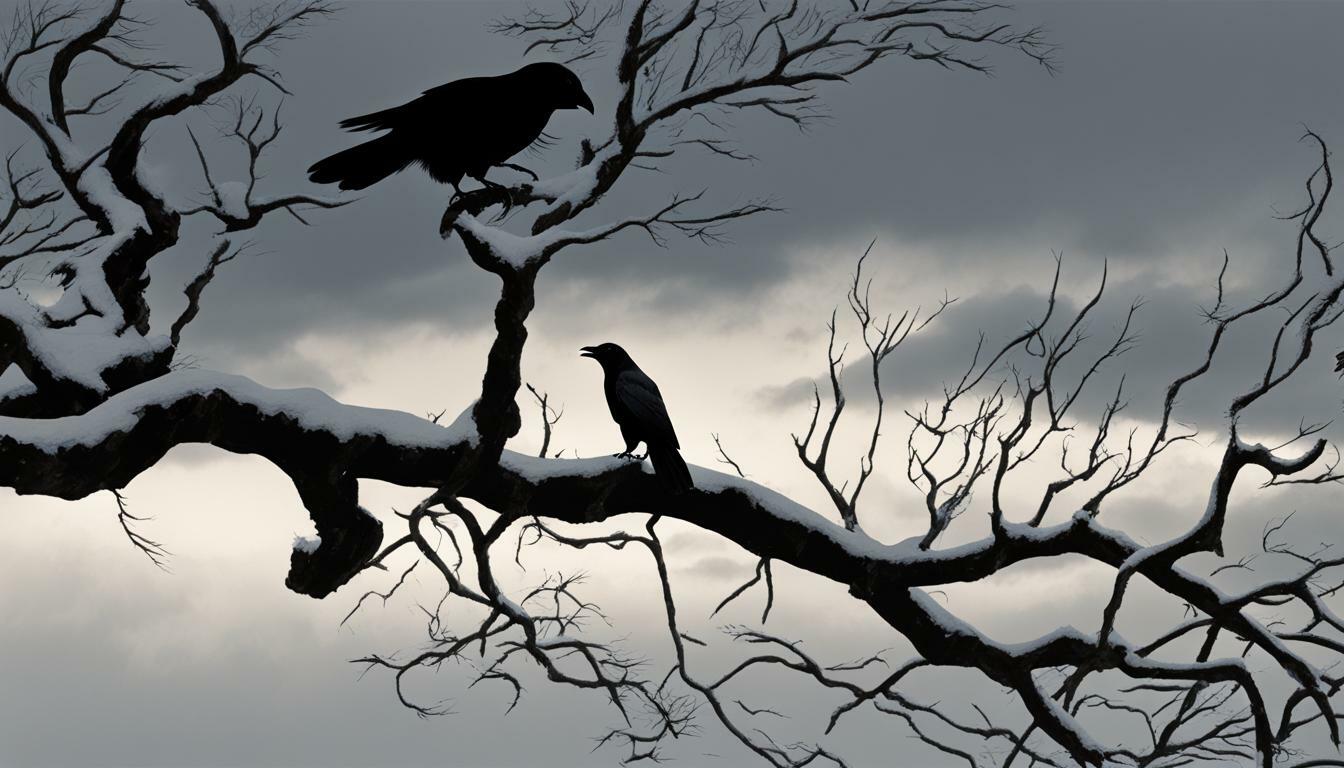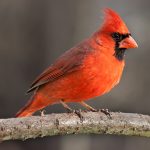Crows are fascinating creatures known for their intelligence, problem-solving skills, and distinctive calls. As avian scavengers, they play an important role in the ecosystem by cleaning up carrion and recycling nutrients back into the environment. But what about their diet? Are they predators that actively hunt small animals like squirrels, or do they rely mostly on scavenging for sustenance?
In this article, we will explore the eating habits of crows and their relationship with squirrels. We will examine the diverse diet of crows and their scavenging behavior, as well as discuss the predator-prey relationship between these two species. By understanding the natural animal behavior of crows and squirrels, we can gain a deeper appreciation for the complexity of the food chain and the role each species plays in maintaining a healthy ecosystem.
Key Takeaways
- Crows are avian scavengers that play an important role in cleaning up carrion and recycling nutrients back into the environment.
- Crows have a diverse diet that includes insects, seeds, fruits, and small animals.
- There is evidence that crows may actively prey on squirrels, but the frequency of this behavior is not well documented.
- Understanding the natural animal behavior of crows and squirrels can shed light on the dynamics of their predator-prey relationship.
Crow Eating Habits and Scavenging Behavior
As scavengers, crows have a diverse diet that includes carrion and small animals. While they are opportunistic feeders and will eat almost anything they come across, they have a particular preference for meat, especially fresh carrion. Crows will often feed on the carcasses of roadkill, small animals, and birds. They have powerful beaks that allow them to rip open tough hides and access the meat inside.
In addition to scavenging, crows are also active predators. They are known to prey on small animals such as insects, worms, and small mammals. Although their prey varies depending on their location and habitat, birds make up a significant portion of their diet. Crows are also known to feed on eggs and young of other birds, as well as small reptiles and amphibians.
When feeding, crows use their sharp eyesight to locate food, often from a distance. They are also known to follow other animals, such as birds of prey and coyotes, in order to scavenge on their leftovers. This behavior has earned crows the reputation of being opportunistic feeders and avian scavengers.
Crows as Bird Feeders
Another interesting aspect of crow feeding behavior is their tendency to feed other birds. Although they are known to steal eggs and young from other birds’ nests, crows will also feed other birds, especially during the breeding season. They are known to bring food to their mates, as well as to their young. This feeding behavior is an important part of their social structure.
Predator-Prey Relationship with Squirrels
Although crows are known to feed on small mammals, such as voles and mice, there is limited evidence to suggest that they actively prey on squirrels. While it is possible that crows may occasionally hunt squirrels, this behavior seems to be rare. Instead, crows are more likely to scavenge on squirrel carcasses or feed on them when they find them already dead.
Overall, crows have a varied diet that includes scavenging and predation. While they may scavenge on squirrel carcasses, they are not known to be significant predators of squirrels. This predator-prey relationship between crows and squirrels reflects the complex dynamics of natural animal behavior.
The Diet of Crows: What Do They Actually Eat?
Crows are known for their diverse diet and scavenging behavior. They are opportunistic feeders that consume a varied selection of food sources ranging from insects, fruits, seeds, and small animals. Their diet varies depending on the season and location, but their preference for carrion and small animals remains consistent.
While crows are not specialized predators like raptors, they do prey on small animals, including squirrels. However, squirrels are not a common prey item for crows. Although crows have been known to hunt and kill squirrels, they are more likely to scavenge on carrion or feed on smaller animals such as rodents and insects.
Crows are also known to be intelligent scavengers. They have been observed using tools to acquire food, such as using sticks to extract insects from tree bark or cracking nuts open with rocks. Their ingenuity and adaptability have allowed them to thrive in various habitats, including urban areas where they scavenge on human food waste.
Squirrel Predation: Are They on the Menu for Crows?
When it comes to the predator-prey relationship between crows and squirrels, the question on everyone’s mind is whether crows actively prey on squirrels. While crows are known to be opportunistic scavengers and predators, their diet and hunting habits vary depending on various factors, such as the availability of food and the presence of other predators in the area.
Documented cases of crow predation on squirrels are relatively rare, as crows generally prefer smaller animals and carrion. However, there have been instances where crows have been observed hunting and killing squirrels, especially young and vulnerable ones. Factors that may influence this behavior include competition for resources, territorial disputes, and the need to feed their young.
It is important to note that the predator-prey relationship between crows and squirrels is just one aspect of their dynamic in the ecosystem. Understanding the natural behavior of these animals can shed light on the larger picture and how they contribute to the balance of nature.
Understanding Natural Animal Behavior
When studying the predator-prey relationship between crows and squirrels, it is essential to consider the concept of natural animal behavior. Evolutionary adaptations and instincts play a vital role in shaping the dynamic between these two species.
Crows, as scavengers and predators, have developed diverse feeding habits that include consuming insects, fruits, seeds, small animals, and carrion. Their ability to adapt to different food sources reflects their flexible and opportunistic behavior in the wild.
“Squirrels are preyed upon by various predators, including hawks and foxes. However, the extent to which crows prey on squirrels remains a topic of debate.”
The predator-prey relationship between crows and squirrels is complex, and it is not always clear whether crows actively prey on squirrels. While some studies have documented cases of crows preying on squirrels, it is unclear whether this behavior is common or rare. Factors such as the availability of other food sources, population density, and habitat can influence the frequency of these interactions.
Understanding natural animal behavior is critical in interpreting the dynamics of the predator-prey relationship between crows and squirrels. It highlights the importance of natural selection and adaptation in shaping the behavior of these two species.
Unveiling the Truth: Do Crows Eat Squirrels?
After exploring the eating habits of crows and their relationship with squirrels, it’s time to answer the question that brought you here: do crows eat squirrels?
The answer is yes, crows are known to prey on squirrels occasionally. However, squirrels are not a common prey item for crows, and they only make up a small part of their diet. Crows are omnivorous and consume a wide variety of foods, including insects, seeds, fruits, and carrion. Small mammals such as squirrels are only a small part of their diet, and they usually prey on them only when other sources of food are scarce.
While crows are capable of preying on squirrels, it’s important to remember that this is a natural part of the ecosystem. In the wild, predator-prey relationships are crucial for the balance of nature, and each species has its role to play. Crows and squirrels have evolved alongside each other, and their interactions are shaped by a complex web of adaptations and instincts.
Understanding the diet and eating habits of crows is important not only for understanding their interactions with squirrels but also their broader role in the ecosystem. Crows are important avian scavengers, and their feeding habits have a significant impact on their environment.
In conclusion, while crows do eat squirrels, it’s not a common occurrence. Understanding natural animal behavior and the predator-prey relationships between species is important for gaining a deeper understanding of the natural world around us.
Are Birds at Risk of Being Eaten by Squirrels?
Are Birds at Risk of Being Eaten by Squirrels? The rumor about squirrel diet: bird consumption debunked. While squirrels are known to eat various foods, including nuts, fruits, and seeds, the notion that squirrels often hunt and consume birds is a misconception. Although squirrels may occasionally pick at eggs or fledglings, their primary diet consists of plant-based materials rather than feasting on their feathered friends.
FAQ
Q: Do crows eat squirrels?
A: While crows are known to be opportunistic scavengers and predators, it is not common for them to actively hunt squirrels. Crows primarily feed on a wide range of food sources, including insects, seeds, fruits, carrion, and small animals. While there have been documented cases of crows preying on squirrels, it is not a regular part of their diet.
Q: What do crows eat?
A: Crows have a diverse diet that includes insects, seeds, fruits, carrion, and small animals. They are opportunistic scavengers and will consume a variety of food sources depending on availability. While they may occasionally prey on small animals such as squirrels, it is not their primary source of food.
Q: Are crows considered avian scavengers?
A: Yes, crows are classified as avian scavengers due to their scavenging behavior. They are known to feed on carrion and other food sources that are already dead or decaying. This scavenging behavior helps them find sustenance in various environments.







